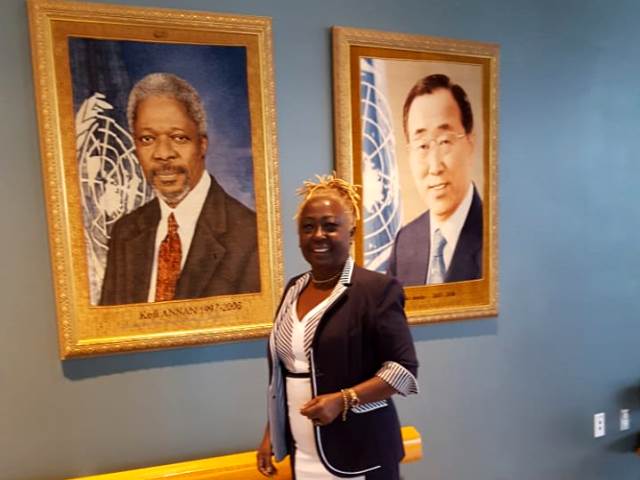(This article is the first in a series of essays written by Dr. Nilda Arduin to commemorate
1 July 1863, the Abolition of slavery within the Dutch Kingdom) – July 2022
Within an atmosphere of visible racism internationally and strained relations within the Dutch Kingdom, I continue to ponder on the origin of the contentions among the partners within the realm. Doing the math, I realize that on both sides of the ocean we – the descendants of the enslaved Africans and the descendants of the imperial masters/the colonists – fail to acknowledge and have open discussions about the remnants of our shared history, which after all is not as distant as we pretend it to be.
Considering that my sister’s five grandchildren all had the privilege to sit on my mother’s lap, their great-grandmother, I realize that even if I was privileged enough to be born before my great-grandparents transitioned, I most probably would not have been able to enjoy the same privilege. They were all born before 1863 when Suriname and Curaçao (and its dependencies) were still subject to slavery. Even my grandparents were born just a few years after the abolition of slavery. Have you ever done this math within your family?
Considering myself a victor, descendant of the strongest among the strong, who survived slavery, I do not ignore the trauma, stigma and deprivation many of the people that look like me in the West had and still have to endure. Refusing to embrace the victim role, I however consider it high time to widely and honestly discuss the stigma, which turned us against ourselves. Inviting the descendants of the imperial masters to join the conversation is a must. It is important to look each other in the eyes, while discussing the consequences of divide and conquer still visible and alive today.
We need to understand that defining ourselves among each other by color codes ranging from lighter shades of being ‘colored’ to the darkest shades of coffee and mahogany is an invention designed and structurally maintained by the imperial masters, to keep the diaspora African (as a race) divided. Honest and open discussions of institutionalized racism since the “Willy Lynch” letter of 1712 (hence the well-known term ‘lynching’) should provide both Afro-Caribbean and Caucasian people insight and awareness concerning the brutal and inhumane psychology behind the Transatlantic slave trade. Concepts which I am sure many fellow citizens in the European part of the Dutch Kingdom have never heard of, and are certainly not aware of their impact on today’s institutions and societies. Recognizing and addressing systemic structural flaws, which became the norm, require mindfulness. Avoiding such conversations by brushing them off as being the past, I remind the reader that the Jewish Passover is commemorated yearly for over 3000 years to celebrate the Hebrews’ liberation from slavery in Egypt.
It is time that we look at ourselves and acknowledge the traumas supported and inflicted upon our own with references to our sisters and brothers with a darker complexion as ‘tar babies’, and subsequent favoring those among us with lighter skin. This too is a remnant of our collective dark history and considered the norm in our societies without further questioning. Breaking the silence and have these conversations openly is required to travel the path of rediscovery, recovery and healing. A path certainly not meant to dwell in the past and stay there, but to enable understanding and meaningful cooperation as we move forward within the realm.
Do the math and note that compared to approximately three hundred years of Transatlantic slave trade, anno 2022 barely marks half the time that all citizens in the Caribbean part of the Dutch Kingdom are free since the Abolition of slavery in 1863. Though equal citizenship with voting rights for the Afro-Dutch only exists since 1948 in the Caribbean part of the Kingdom. To consider discussions surrounding slavery and its consequences in our times a ‘Black thing’ is therefore a gross misconception, which only perpetuates racial discrimination and conflicts within the realm.
Considering that a European Dutch citizen is able to trace his or her roots far back to most probably the Middle Ages and beyond, while the Afro-Dutch citizen – the baby boomers-, can hardly identify his or her great-grandparents by name, should tell that the shared history within the Dutch Kingdom is not as far as we pretend.
Consider the following actions and discussion points:
Have we sufficiently heeded and acted upon the lyrics of the Redemption Song by Bob Marley, a repetition of the call issued by Marcus Garvey in the 1930’s to emancipate ourselves from mental slavery?
Invite some friends to watch a few documentaries about contemporary slave trade. Subsequently, identify and discuss ways to deal with the socio-economic and psychological impact of the Transatlantic slave trade on our societies today. This included not only free labor, but huge profits for the imperial home countries.





























